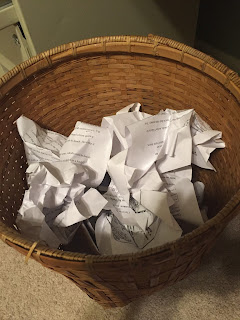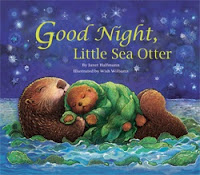If you're a writer, you've probably said this many
times… My writing isn't any good. I know. Been there, done that and
have the wastebaskets full of crumbled papers.
Initial doubts begin with your first critique session.
You've taken your brilliant manuscript to your writing group expecting them to
be wowed by your creative genius. Instead your fellow writers suggest you
cut paragraphs, improve your grammar, add emotion, and delete extraneous dialog
tags and much more.
You’re crushed and think this writing thing just isn't worth
it! Or you may think what do they know? This was written from your
heart and readers will cherish your wit(Like Ralphie in A Christmas
Story movie where he expects to see A++++ from his teacher for his
lackluster theme about why he should have a Red Ryder BB gun for
Christmas). That was my first impression after one of my critique
sessions. But I did go back to the next group get-together.
What writers who have been at it for awhile know is at one time they were
in your same situation. As writers, we’ve all gone through this step and see it
repeated over and over with new writers. I didn’t give up and neither should
you. Writing is a learning process and so are critiques. Make sure you
understand the grammar and style suggestions. Ask your fellow scribes for
suggestions on writing courses and their favorite books on writing. We all want
to succeed – and we want you to be a success as well.
The results depend on you. An “overnight” writing success
usually takes multiple manuscripts before the first one takes off. Good writing
takes practice. I laugh when I hear someone finished their first draft and
think it’s ready to go off to the printer right then and there. A good writer can
find improvements to their manuscript even after it has been edited several
times.
Like the old adage for musicians…How do you get to Carnegie
Hall?
Practice,
man. Practice.
It’s the same with writing. You need to practice and learn
how to make a lyrical composition with words that will resonate with your
readers.
Writers need to be readers, too. Read in the genre you want
to write. Study other authors’ books to see what draws you into their stories.
And don’t be surprised if you find occasional errors. After all, no one is
perfect; but a good editor will usually weed out most of the mistakes.
Soon you’ll find ways to improve your own stories. And
you’ll start to see when the prose is’t working as your inner editor starts
critiquing your writing.
To answer the question I originally posed at the start. Why
I bother is I love to write and share stories where readers can learn from my
characters as they reach for their dreams. Maybe that will give them the
impetus to reach for their own goals.
This post is part of the Writing Contest: Writers
Crushing Doubt. Hosted by Positive Writer. For details and more positive tips
on writing, go to the link below.
http://positivewriter.com/become-the-writer/#disqus_thread
Keep on writing!















